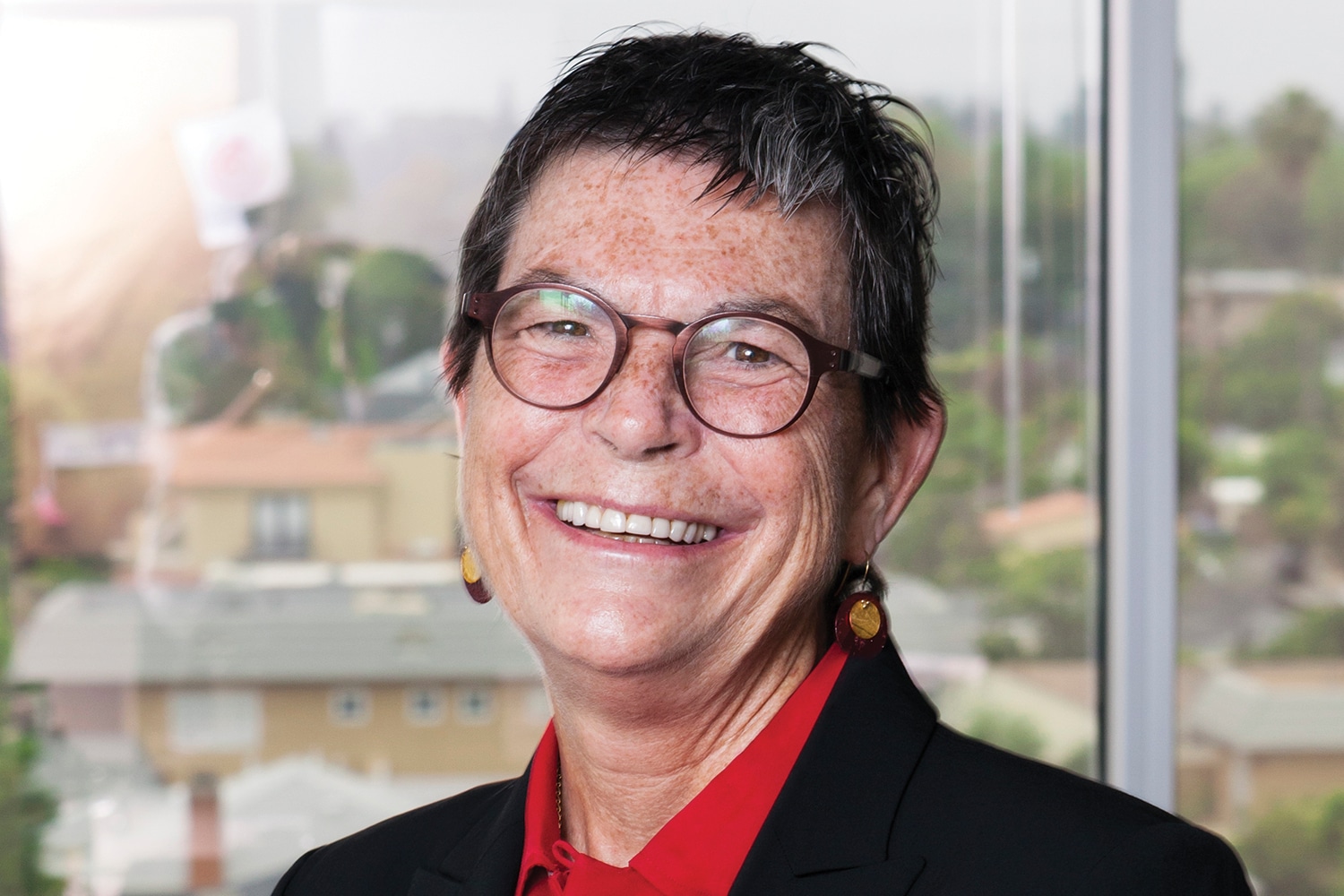Cancer doctors come face-to-face with the disease every day. But as breast cancer surgeon and patient advocate Susan Love learned in June 2012, it’s one thing to study and treat the disease and quite another to hear your own doctor say, “You have acute myelogenous leukemia.”
One of the mothers of the breast cancer advocacy movement, Love, 65, is widely known for her best-selling Dr. Susan Love’s Breast Book, often referred to as the “bible of women with breast cancer.” She founded the Brigham and Women’s Faulkner Breast Center in Boston in 1988 and in 1992 moved west to become the first director of the Revlon/UCLA Breast Center in Los Angeles. Hugely admired, Love received more than 1,000 messages of support from breast cancer survivors when she went public with her diagnosis of leukemia.
Love returned to her position as president of the Santa Monica, California-based Dr. Susan Love Research Foundation in January, more dedicated than ever to pushing breast cancer research forward through her two pioneering initiatives: the Army of Women and the Health of Women Study. Cancer Today spoke with Love about her diagnosis and her focus on finding the causes of breast cancer.
Q: What was it like for you to get a cancer diagnosis?
A: I was completely shocked. I’d had blood tests as part of a routine doctor’s visit. I felt fine and had even run five miles the night before my doctor called. Everything you know goes out the window when you hear you have cancer.
Q: What did your treatment entail?
A: I had chemotherapy and a bone marrow transplant. Spending so much time in the hospital was hard because I love being outside. But my family members were with me all the time, surrounding me with love and support. I’m cancer-free at the moment, but I know that can change at any time.
Q: How has your diagnosis affected your work in breast cancer?
A: I’m even more convinced that we need to focus on finding the cause of breast cancer and how we can prevent it. When I was training to become a surgeon, women with cervical cancer had total hysterectomies and lost their fertility. Then we figured out it was almost always caused by a sexually transmitted virus. Now we have a vaccine that can prevent the disease. That’s the home run. That’s what our goal has to be. That’s how we are going to make the biggest difference.
Q: What do you think has been your greatest contribution to the breast cancer movement?
A: My breast cancer book turned out to have a much bigger impact than I anticipated. It was the first book written for the public to explain the science behind breast cancer and breast cancer treatments. The book has helped mobilize women to become breast cancer advocates.
Q: How did your cancer diagnosis affect your view of life?
A: I encourage everyone to live every day to the fullest—whether that means doing something to change the world, traveling or drinking good wine. I’ve lived my life that way and have no regrets.
Q: What advice do you have for cancer patients based on your experiences?
A: People diagnosed with cancer need to educate themselves about the key issues for their type of cancer, find the best place they can to get treatment and hand their treatment over to a doctor or team they trust. It’s a good idea for cancer patients to bring someone with them to their appointments. I recommend that they use a tape recorder instead of taking notes so they don’t miss what the doctor is saying. Once they choose a doctor and decide on a treatment plan, they need to just relax and let it go. Worrying doesn’t help.
Cancer Today magazine is free to cancer patients, survivors and caregivers who live in the U.S. Subscribe here to receive four issues per year.





